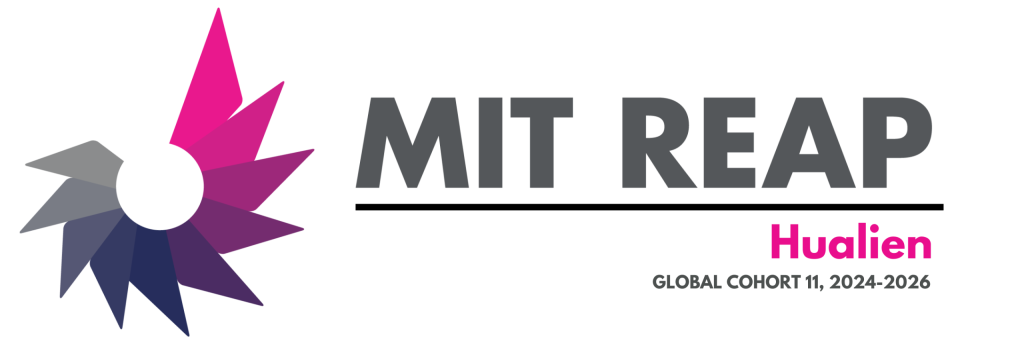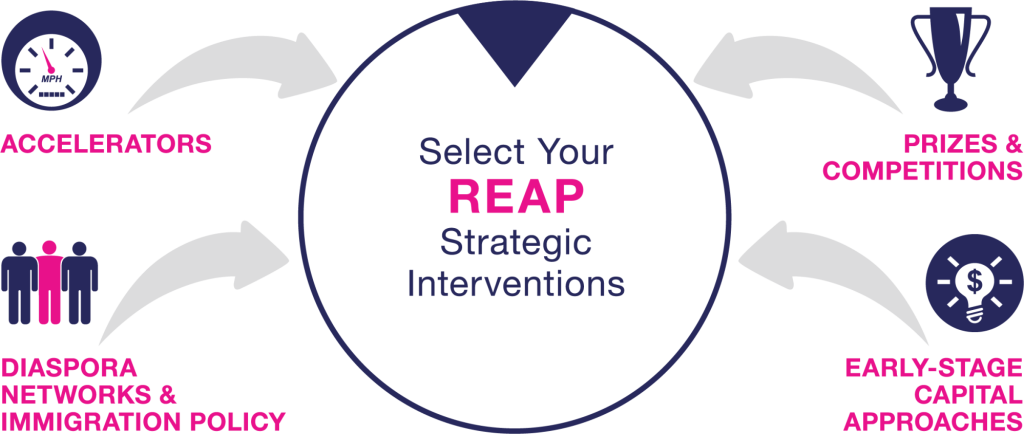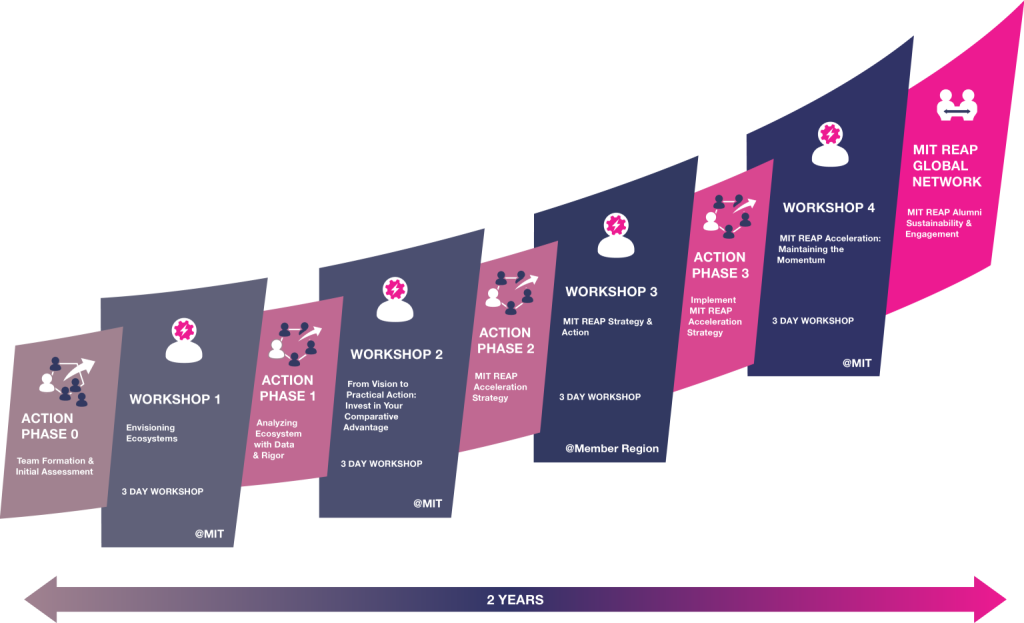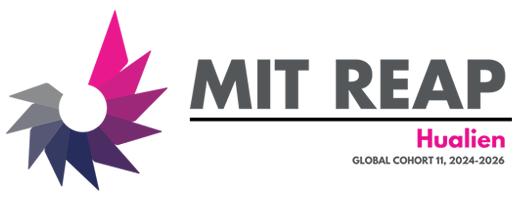MIT REAP 101

The MIT Regional Entrepreneurship Acceleration Program (REAP) is a global initiative by the Massachusetts Institute of Technology designed to help regions accelerate economic growth and innovation-driven entrepreneurship. Through a two-year learning engagement, MIT REAP brings together key regional stakeholders from government, academia, risk capital, corporations and entrepreneurs, to form a unified team that can drive systemic change.
Each team works closely with MIT faculty and a global cohort of other regions to identify local strengths and challenges, develop evidence-based strategies, and implement impactful initiatives that foster sustainable innovation ecosystems.
Team Hualien is proud to be part of this prestigious program as a member of MIT REAP’s Cohort 11, working collaboratively to shape a compelling and inclusive future for Eastern Taiwan
Results

- Government – shaping policy and enabling growth
- University – driving research and talent development
- Entrepreneurs – building ventures and solving problems
- Risk Capital – fueling ideas with investment
- Corporate/Industry – scaling innovation and creating markets
Each regional team is composed of leaders from these five pillars. Together, they collaborate across sectors to co-create a unified strategy tailored to their region’s strengths and needs.

MIT REAP equips regional leaders with the tools, data, and guidance to accelerate this kind of entrepreneurship, with the aim of turning potential into progress. The result is a stronger, more resilient innovation ecosystem capable of adapting to change and creating meaningful opportunities for the future.
How Does the Program Unfold?
MIT REAP is structured around four action-based learning cycles spread over two years. Each cycle includes a dynamic workshop followed by a focused implementation phase.

MIT REAP is structured around four action-based learning cycles spread over two years. Each cycle includes a dynamic workshop followed by a focused implementation phase.
The workshops, held every 6–9 months, are immersive 3-day experiences that take place mostly at MIT (with one hosted by a participating region). These sessions include lectures, case study discussions, ecosystem tours, in-depth topic explorations, and collaborative group work. Each workshop prepares teams to take real action back home.
Between workshops, teams enter Action Phases—periods dedicated to applying what they’ve learned. During these phases, teams conduct local research, test assumptions with regional stakeholders, and begin implementing strategic initiatives. These cycles ensure that ideas turn into action and that strategies are continuously refined based on real-world feedback.
Results
By participating in MIT REAP, regions aim to emerge with a transformative, locally grounded strategy to drive innovation-led economic growth. This strategy is built on a shared understanding among stakeholders from government, academia, business, and risk capital—commonly known as the “innovation-driven entrepreneurial ecosystem.”
Regions hope to establish not only a robust action plan tailored to their unique context, but also a durable coalition capable of implementing long-term change. The goal is to catalyze sustainable entrepreneurship, attract investment, create high-quality jobs, and position the region as a dynamic contributor to the global innovation economy.
For more information, see the MIT REAP webpage.
